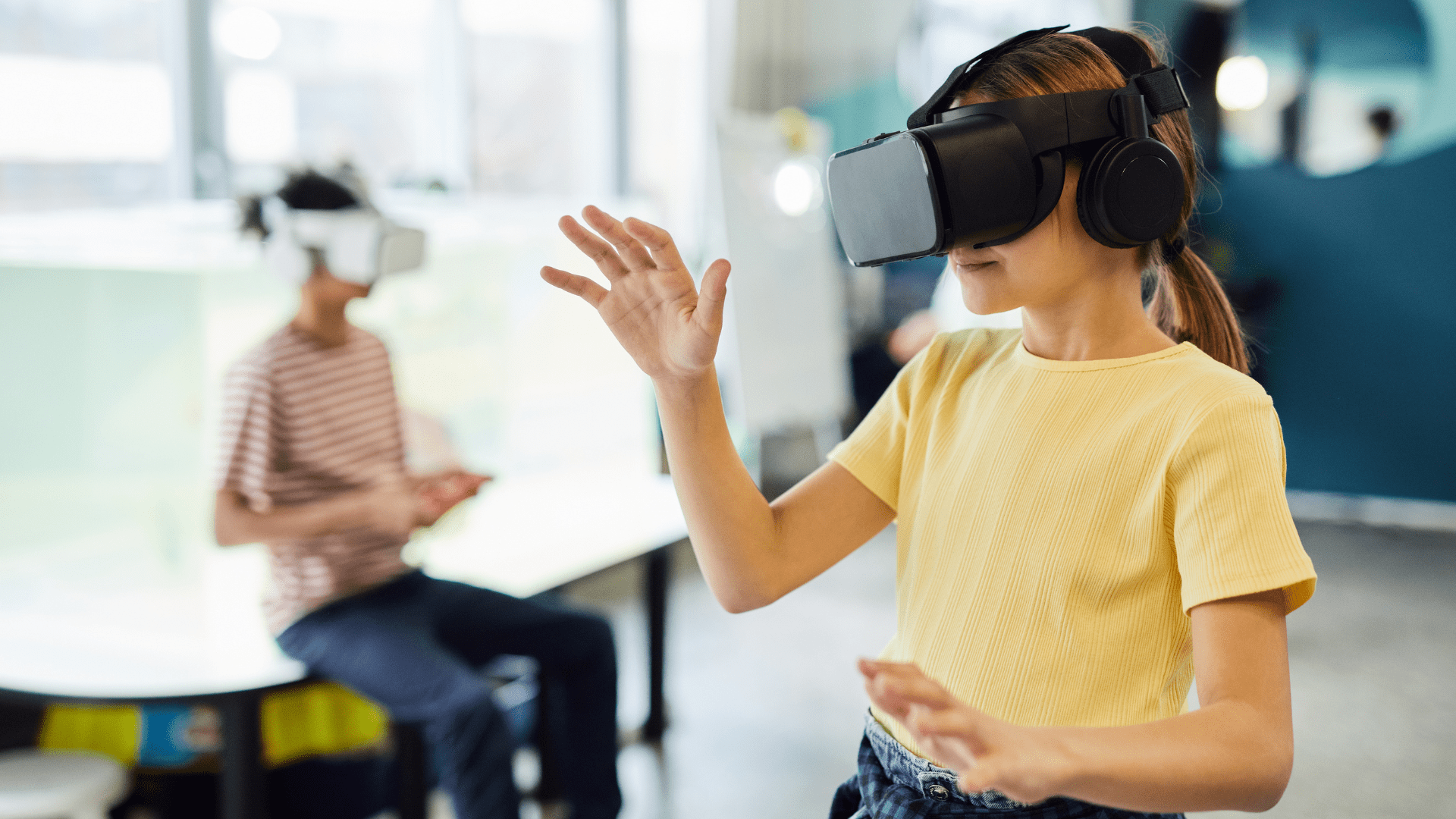UX LENS
News and Tips

Virtual Reality (VR) Interface Design
Virtual Reality Interface Design is transforming the way we experience digital content by immersing users in fully interactive, three-dimensional environments. It presents unique challenges and exciting opportunities for UX/UI designers. In this blog, we’ll explore the key principles and best practices for crafting effective and engaging VR interfaces.
Understanding Virtual Reality
Virtual Reality Interface Design creates a simulated environment that users can interact with in a seemingly real or physical way using special electronic equipment, such as a headset with a screen inside or gloves fitted with sensors. Unlike traditional interfaces, Virtual Reality Interface Design require a different approach to design due to their immersive nature.
Key Principles of VR Interface Design
Usability and Intuitiveness
Virtual Reality Interface Design should be easy to use and understand. Users should be able to navigate and interact with the virtual environment without extensive training. Intuitive design elements, such as natural gestures and voice commands, can enhance usability.
Spatial Awareness
Designers must consider the three-dimensional space in which users will interact. This includes understanding how users move within the space and how they perceive depth and distance. Proper spatial mapping ensures that virtual objects are placed in a way that feels natural and accessible.
Minimising Motion Sickness
Motion sickness is a common issue in Virtual Reality (VR) Interface Design. To minimise this, designers should avoid rapid movements and ensure smooth transitions. Providing users with control over their movement and using visual cues to stabilise the environment can help reduce discomfort.
Feedback and Responsiveness
Immediate feedback is crucial in Virtual Reality (VR) Interface Design to maintain immersion. Users should receive visual, auditory, or haptic feedback for their actions. This helps in reinforcing interactions and making the virtual environment feel more responsive and alive.
Accessibility
Designing for accessibility ensures that VR experiences are inclusive. Consider features like adjustable text sizes, colour contrast options, and alternative input methods to accommodate users with different needs.
Best Practices for VR Interface Design
Prototyping and Testing
Prototyping is essential in Virtual Reality Interface Design . Use both low-fidelity and high-fidelity prototypes to test interactions and gather user feedback. This iterative process helps in refining the design and ensuring it meets user expectations.
Consistency and Familiarity
Maintain consistency in design elements and interactions to reduce the learning curve for users. Leverage familiar UI patterns and metaphors to make the VR experience more approachable.
Performance Optimization
VR applications can be resource-intensive. Optimise performance to ensure smooth and responsive interactions. This includes efficient rendering of 3D models, minimising latency, and ensuring compatibility with various devices.
Ethical Considerations
Be mindful of the ethical implications of VR. Respect user privacy and data security. Avoid creating experiences that could be intrusive or manipulative. Design with empathy and consider the broader societal impact of your VR applications.
Conclusion
Designing interfaces for virtual reality is a complex but rewarding endeavour. By focusing on usability, spatial awareness, minimising motion sickness, providing feedback, and ensuring accessibility, UX/UI designers can create immersive and engaging VR experiences. As Virtual Reality (VR) Interface Design technology continues to evolve, staying informed about emerging trends and best practices will be key to delivering exceptional user experiences.
Placement of the week

Shubham Dawal - BSc Biotechnology
Credable – UXUI Design Intern
I discovered the potential in EDIT’s course. It proved to be a valuable investment, securing me a job with specialized support from the placement team. I highly recommend EDIT’s course for those interested in UI/UX design. My experience was rewarding, with user-friendly learning and real-world projects. EDIT’s UX/UI course provides constructive criticism during assignment evaluations and supportive instructors. The interview prep sessions were really helpful, ensuring I was well-prepared for job interviews. Thank you, EDIT, for preparing me for this fulfilling career!
